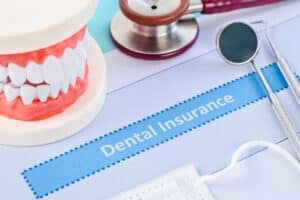We all know sugary drinks are bad for our teeth, but what about bottled water, the seemingly healthy alternative? While it’s definitely a better choice than soda or juice, bottled water might not be the champion for oral health some believe it to be. Here’s a breakdown of how bottled water can impact your teeth and how to make sure it’s not contributing to your next dental woe.
Understanding Bottled Water and Its Composition
Bottled water comes in various forms, including spring water, mineral water, purified water, and distilled water. Each type undergoes different processing methods, which can affect its mineral content. One critical factor often overlooked is the fluoride content in bottled water.
The Role of Fluoride in Dental Health
Fluoride is a naturally occurring mineral known for its benefits in preventing tooth decay. It strengthens the tooth enamel, making it more resistant to acid attacks from plaque bacteria and sugars in the mouth. Public water supplies in many areas are fluoridated to help reduce the incidence of dental cavities.
Fluoride Levels in Bottled Water
Most bottled waters contain little to no fluoride. This lack of fluoride can be a concern for individuals who primarily consume bottled water, as they may not receive adequate fluoride exposure to protect their teeth from decay. Here’s why fluoride deficiency can be problematic:
- Increased Risk of Cavities: Without sufficient fluoride, your teeth are more vulnerable to cavities and decay.
- Weaker Enamel: Fluoride helps to remineralize and strengthen enamel. Lack of it can lead to weaker enamel and increased sensitivity.
- Higher Dental Costs: Over time, the increased risk of cavities and decay can lead to more frequent dental visits and higher treatment costs.
pH Levels and Acidity in Bottled Water
The pH level of water is another crucial factor in dental health. Water with a pH below 7 is considered acidic, which can erode tooth enamel over time. Some bottled waters, especially those labeled as “purified” or “distilled,” may have a lower pH and higher acidity.
Effects of Acidic Water:
- Enamel Erosion: Prolonged exposure to acidic water can wear down enamel, making teeth more susceptible to cavities.
- Tooth Sensitivity: As enamel erodes, the underlying dentin becomes exposed, leading to increased tooth sensitivity.
- Staining: Acidic environments can make teeth more prone to staining from foods and drinks.
Comparing Bottled Water to Tap Water
Tap water in many regions is regulated to contain optimal fluoride levels for dental health. Additionally, tap water is usually less acidic than bottled water. Here’s a comparison:
- Fluoride Content: Tap water typically contains fluoride, while most bottled waters do not.
- pH Levels: Tap water generally has a neutral pH, whereas some bottled waters can be more acidic.
- Cost and Environmental Impact: Tap water is more cost-effective and environmentally friendly compared to bottled water.
Tips for Protecting Your Teeth
If you prefer mineral water or have limited access to fluoridated tap water, consider these tips to protect your dental health:
- Check Labels: Some bottled waters are fortified with fluoride. Check the labels to find options that contain fluoride.
- Use Fluoridated Dental Products: Use toothpaste and mouthwash that contain fluoride to help protect your teeth.
- Regular Dental Checkups: Visit your Keller dentist regularly for professional cleanings and fluoride treatments as needed.
- Monitor pH Levels: Opt for bottled water with a neutral pH to avoid enamel erosion.
- Maintain a Balanced Diet: Consume foods rich in calcium and phosphorus to support strong teeth and enamel.
While drinking mineral water can be convenient, it may not always be the best choice for your dental health, especially if it lacks fluoride and has a low pH. Fluoride helps protect your teeth against decay, so consider incorporating fluoridated tap water into your routine. Additionally, using fluoride dental products and being mindful of the acidity of the water you consume can further safeguard your dental health.
To enjoy the benefits of mineral water without compromising your teeth, it’s important to take these steps. Remember that a well-rounded oral hygiene routine, which includes brushing twice a day, flossing daily, and attending regular dental checkups, is essential for preventing tooth decay and other dental problems. By making informed choices about the water you drink and maintaining good oral hygiene habits, you can keep your smile healthy and bright.





